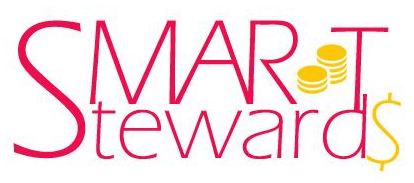One of my favorite cousins works in an investment bank. As a young undergraduate student who used to be around my cousin and his colleagues, I used to love how they looked very smart. Did I say that the investment bankers were almost always glued to the Financial Times dailies on the early morning ride to my University campus? I looked forward to being a City banker myself someday. Imagine how elated I was when I got my first job as an analyst. I looked like I was living my dream, right? Wrong! The euphoria went as quickly as it came!
Like me, do you feel unhappy and frustrated with your job? Are you ready to quit your job? Are you between jobs or undecided on what next to do? If any of these answers is yes, then, you may want to consider a change in career.
First, let us look at what the concept of a career change is and the reasons why we want to change.
A career change at its most basic is changing jobs or any profession you have been doing.
A career change could be a change within the same industry, for example moving from Customer Service to Finance department within the same organization.
It could be a change of industry, for example, a change from real estate to classroom teaching.
A career change could also be when you leave your job to start your own business or vice versa.
Why then do people consider changing jobs or careers?
People consider changing jobs or careers for different reasons such as when they are not satisfied, have a void, or just want to explore new frontiers with more opportunities. The satisfaction you get at your job is the positive feeling and emotion you get from your career. This translates to the fact that you are unhappy with your job when you are unsatisfied, which might be due to one or a combination of:
- Work-life balance
- Loss of passion for the job or change in life goals
- No room for career growth and advancement
- Salary not commensurate with workload
- Lack of trust in company leadership
Career changes require careful planning, a lot of research, and patience to spur effective change so one does not feel stuck in-between. Below are some helpful tips for an effective career change:
Assess your current situation: take an inventory of your job, what do you like or dislike about it? Is it the compensation, people, organizational structure, or culture? Assess your skills, talents, values, and interests. Determine if your skills, talents, and interests could be shifted into another department, industry, or your personal business.
Decide what you truly want. Be true to yourself and decide objectively if you want a promotion in the current job, or you want to get a similar job in a different company, change the industry, start a new career in line with your newfound passion/interest or start your own business.
Make an action plan. Be deliberate about your goals. Making a decision gives you a reason to start the career change process and follow it through. It helps you translate your plans into SMART goals (SMART-Specific, Measurable, Achievable, Realistic, and Time-bound). It is more likely that you may need to start your day early to give you the leverage to research about your new career path. At this point, think about getting additional degrees, certifications or skills, and getting into networking event rooms. Update your resume to accommodate your new degree or skills, update your LinkedIn profile for example.
Seek Mentors/Coaches. There is someone who does what you love effortlessly, reach out to such person(s). Your mentor should not necessarily be older than you, however, he/she must have proven successful in the area you need to be mentored. If that option isn’t within your reach, then you could pay coaches to guide you into your new terrain. Having a mentor/coach makes transitions in life smoother, more effective, and efficient, however, it is not compulsory to do so.
Leverage your social network. All you need at times is a recommendation. How best do you get that if not from your social circle? Inform the right people preferably in the industry you desire to work in, they could either recommend you or inform you of job openings in the desired industry. As well, if you are looking to start your business, your friends and family would probably be your first sets of customers and referrals. Speak up on your newfound love so much to make them believe in you.
Think of volunteering or Intern placement. I found this very uncommon in our part of the world. I heard the story of a lady who changed her career from banking to education and volunteered as a classroom teacher (without pay) for two years. Thereafter she started her own school. Volunteering and internships give you inklings of your desired career. Volunteering is widely used in non-governmental organizations whereby you serve a purpose while the internship is used in the corporate world. Both give you opportunities to harness skills.
Start your career change as a side hustle. You will want to go this route especially if your current job is your main source of income. This is a strategy to move slowly into a new career without breaking the bank. You can eventually quit your job when the business becomes sustainable and successful and then, you become an employer of labor yourself.
In conclusion, although a career change is as serious as any important decision you make, it is a personal journey. Do not be distracted by the seeming success of other people on their career paths. Have a well-laid-out plan which can be incorporated into your vision board. As much as possible, review your progress from time to time to ensure that you stay on track. Remember to enjoy your journey with a large dose of patience. To those who are currently considering this track of life, may your career change be seamless and worth it!
‘Bukonla Asere has an MSc in International Business Economics from City University, London. She passed her CFA level1 and worked as an Investment analyst. Presently, she is the CEO of KidzAids Toystore, an educational toys outlet and the founder of Lithe Path, a speaking academy to help people build their self-confidence at par their innate abilities. She is a John Maxwell Certified Team member.



Easy to read and thoughtful points to consider. Many thanks for putting this together.
Awesome! Thank you for this…